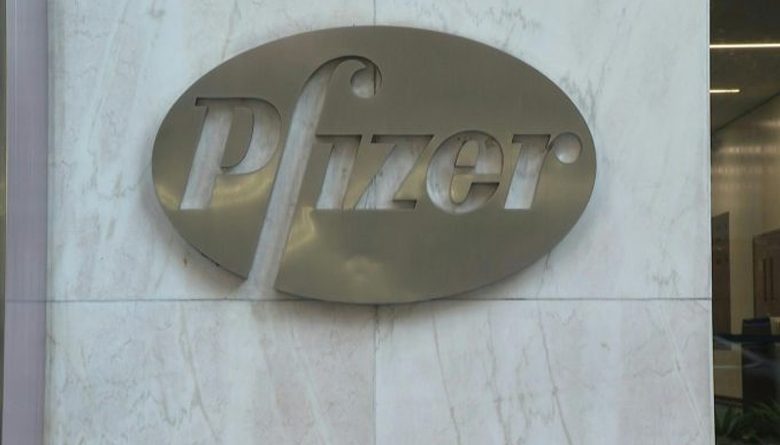Pfizer solicita la aprobación para uso de emergencia de su pastilla contra el covid-19 / Pfizer asks FDA to grant emergency authorization for its COVID-19 pill
En un estudio con 775 participantes, los pacientes que tomaron el medicamento junto con otro antiviral tuvieron una reducción del 89% en su tasa combinada de hospitalización o muerte después de un mes
La farmacéutica Pfizer solicitó formalmente este martes a los reguladores estadounidenses que autoricen su píldora experimental contra el covid-19. De esta manera, se allana el camino para un posible lanzamiento de ese tratamiento en las próximas semanas.
La compañía, que también desarrolló la primera vacuna contra el coronavirus SARS-CoV-2, resaltó el pasado 5 de noviembre que su nuevo medicamento experimental redujo las tasas de hospitalización y muerte en casi un 90 por ciento.
Pfizer indicó que en su su estudio de 775 adultos, los pacientes que tomaron el medicamento junto con otro antiviral tuvieron una reducción del 89% en su tasa combinada de hospitalización o muerte después de un mes. Esto en comparación con los pacientes que tomaron una pastilla ficticia.
Menos del 1% de los pacientes que tomaron el medicamento debían ser hospitalizados y nadie murió. En el grupo de comparación, 7% fueron hospitalizados y hubo siete muertes.
Los participantes del estudio no estaban vacunados, tenían covid leve a moderado y se los consideró de alto riesgo de hospitalización debido a problemas de salud como obesidad, diabetes o enfermedades cardiacas. El tratamiento comenzó entre tres y cinco días después de los síntomas iniciales y duró cinco días.
Estudios de Pfizer
Pfizer informó pocos detalles sobre los efectos secundarios. Pero dijo que las tasas de problemas fueron similares entre los grupos en aproximadamente 20%.
Un grupo independiente de expertos médicos que supervisaron el ensayo recomendó detenerlo temprano, procedimiento estándar cuando los resultados provisionales muestran un beneficio tan claro. Los datos aún no se han publicado para revisión externa, un proceso normal para examinar nuevas investigaciones médicas.
La pastilla del competidor Merck ya está bajo revisión en la Administración de Alimentos y Medicamentos (FDA, en inglés) después de mostrar resultados iniciales sólidos. El jueves el Reino Unido se convirtió en el primer país en aprobarla.
Por GDA | El Nuevo Día
Pfizer asks FDA to grant emergency authorization for its COVID-19 pill
Pfizer is asking federal regulators to authorize its experimental COVID-19 pill, which the drugmaker says can protect people from the most severe symptoms of the disease.
Pfizer on Tuesday said it is seeking Emergency Use Authorization for the antiviral pill, called Paxlovid, from the Food and Drug Administration. Earlier this month, the company said Paxlovid cut the risk of hospitalization and death by nearly 90% in people with mild to moderate coronavirus infections.
The pharmaceutical giant, which also produces a coronavirus vaccine, earlier on Tuesday announced that it has signed a deal with a U.N.-backed group to allow other manufacturers to make the COVID-19 pill, a move that could make the treatment available to more than half of the world’s population.
“The overwhelming efficacy achieved in our recent clinical study of Paxlovid, and its potential to help save lives and keep people out of the hospital if authorized, underscores the critical role that oral antiviral therapies could play in the battle against COVID-19,” Pfizer CEO Albert Bourla said in a statement.
Other drugmakers are also developing a pill to treat COVID-19. An FDA panel is scheduled to meet on November 30 to weigh a potential emergency use authorization for molnupiravir, an antiviral drug developed by Merck and Ridgeback Biotherapeutics that recently won authorization in the United Kingdom.
Merck says its drug, called molnupiravir, halved the risk that adult COVID-19 patients with underlying health conditions ended up in the hospital or died from the disease.
Both Merck’s and Pfizer’s antiviral drugs are swallowed in capsules for five days starting soon after higher-risk patients test positive for the virus. Both pills are designed to reduce the risk of severe disease in the early days after infection, but they work in different ways.
Pfizer says its pill halts the virus from spreading in a person’s body by deploying a new compound that can bind to an enzyme of the virus, blocking it from replicating inside infected cells. Merck’s drug, based on a drug first developed at Emory University to combat the flu, tries to harness the body’s cells to block the virus from replicating.
Paxlovid works similarly to remdesivir, an antiviral drug approved by the FDA last year to treat COVID-19. But the pills would be easier to administer because remdesivir must be given as an I.V. in a hospital or clinic.
Alexander Tin contributed reporting.

